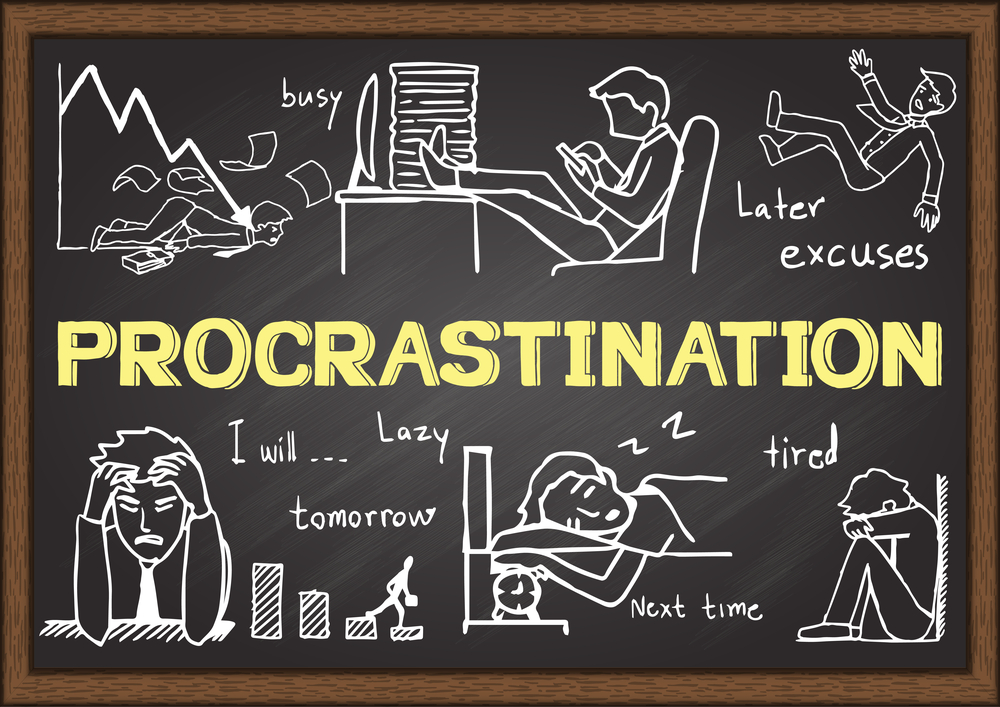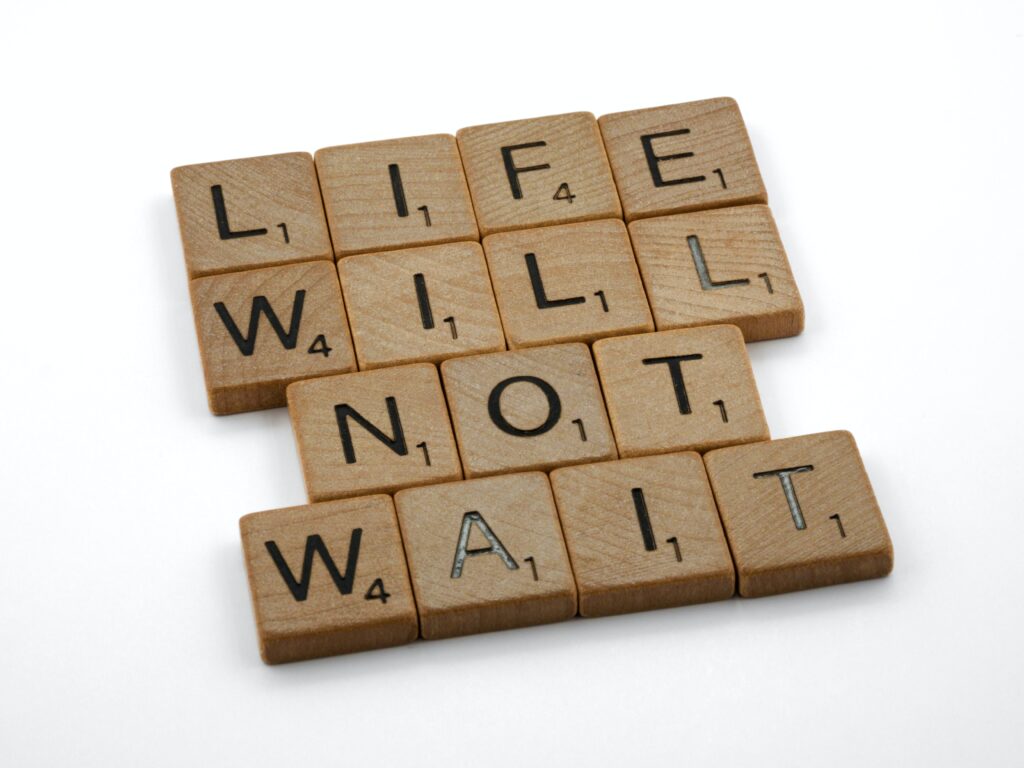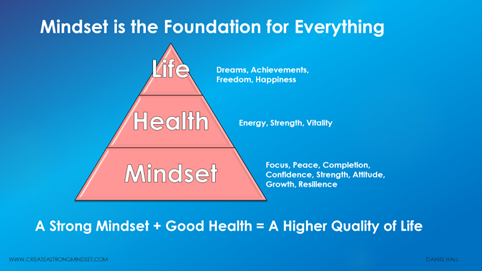How I escaped a difficult procrastination loop.
I was feeling irritated with myself. Once again, I had vowed to get up in the morning and avoid wasting time on my phone, but I had failed.
I had woken up and had immediately started checking my phone.
One voice told me to get up and get to work on my things. Another voice kept telling me to start after just one more game or after just a few more minutes of scrolling on my phone. Deep inside I knew that I should get going, and I really wanted to, but the other voice kept telling myself I had plenty of time.
I was caught in a procrastination loop, and I would end up spending an hour or two or three lying in bed on my phone. This happened every morning when I didn’t have something specific to do.
It wasn’t only when I woke up. It often happened when I would head to the coffee shop to work.
If I had work to do for my “real” job, I could always focus on that work and get it done, but if it was work for my personal business, I would get caught up in the same procrastination loop – need to start but keep delaying.
Deep down, I would eventually start to feel guilt, anxiety and stress caused by my delay.
Eventually, I would do a little work and then create outlines and make specific plans for what I needed to do to progress and finish at a different time. These plans and outlines made me feel better because I felt I was progressing and had done some work, but the truth was, I was just putting everything off until later again.
What Happens in Our Brain
The longer I struggled, the stronger the negative emotions of guilt, anxiety, and stress I felt.
In her book, The Willpower Instinct, Stanford Psychologist Kelly McGonigal says:
“Giving in makes you feel bad about yourself, which motivates you to do something to feel better. And what’s the cheapest, fastest strategy for feeling better? Often the very thing you feel bad about.”
I was giving in to the other voice that was encouraging me to stay on my phone longer, and this was making me feel bad about myself. The stronger those negative feelings became, the more my primitive brain pushed me to do something that made me feel better, which was to continue to distract myself by visiting different sites or playing games on my phone.
These feelings caused me to be caught in a procrastination loop from which it was difficult to escape.
How I Overcame This
First, I learned to become aware of what was happening.
McGonigal says, “You need to recognize when you’re making a choice that requires willpower; otherwise, the brain always defaults to what is easiest. When your mind is preoccupied, your impulses — not your long-term goals — will guide your choices.”
My impulse was to spend more time on my phone.
The moment I realized what was happening, I knew that I had to act. The longer I delayed, the stronger the impulses would be to continue using my phone and stay in bed.
Some Methods I Used to Break the Loop
I made a conscious decision to act. I knew that if I practiced making a decision to do something and then did it quickly, it would help me to develop a stronger mindset.
After deciding to act, I would first think of something so easy to do that my primitive brain would not push back against me.
For getting out of bed, the easiest thing for me to do was to get up and take a shower. If I was delaying on writing, I would make a decision to open my laptop and start typing out headlines.
These actions would always help me break the cycle of my procrastination loop as I found getting started to be my biggest problem.
Sometimes, I would use Mel Robbins’ 5 second rule. Robbins says that the moment you feel hesitation, you should count down from 5 and immediately move to action once you finished your countdown. She says it is best if you do this out loud as it will cause you to use your prefrontal cortex where logical decisions are made.
I would count down to 5 and then do what I had decided.
Feelings of Being Overwhelmed, Anxious, and Stress
Sometimes, I felt overwhelmed with all the work and things I wanted to complete, the fears of the future, and the feeling that things were not moving fast enough.
When I caught myself with these types of strong feelings, I would ask myself, “What is the ‘one’ thing that I could do now for the next 30 minutes that will help me get closer to my goals?”
By only focusing on the next 30 minutes, it really helped to move me from looking at everything to focusing on one, manageable task. I almost always went well past the 30 minutes, and seeing that I had worked on an important task, it helped to reduce the strong negative emotions I had felt earlier.
How I handled, “I will do this after one more game, or I will get up after 10 more minutes.”
McGonigal says, “We look into the future and fail to see the challenges of today. This convinces us that we will have more time and energy to do in the future what we don’t want to do today. We feel justified in putting it off, confident that our future behavior will more than make up for it.”
This quotation was me in a nutshell. I always felt strongly that my future behavior would make up for my current behavior.
McGonigal says that we can battle this by viewing our choices as a commitment for ALL future choices.
Instead of thinking I will get started after one more game, I asked myself, “What are the consequences of me consistently saying that I will start my work after one more game day after day for the next 6 months?” “Do I want the consequences of me playing one more game every day for the next year?”
This forced me to look at and consider the big picture, and this helped move me towards taking action.
I Changed my Environment
In the morning, I slept with the phone by my head so I could check the time and turn off the alarm in the morning easily.
Picking up the phone would always lead me to spending time on it no matter what, so I placed it across the room which would force me out of bed. Once I was up, I would then make a conscious decision to go and take a shower as soon as possible.
This really helped me because, instead of falling into old habits without thought, being forced to get out of bed reminded me of what I was trying to accomplish.
In Conclusion
If you practice these methods, you are not only building better habits, but you are also building willpower and a stronger mindset.
I found that as I practiced the above steps continuously, it started to have a domino effect throughout the day, and I started noticing that I got more and more done. I would feel tired or unmotivated, but I would start and continue a task that needed to be done that I might have put off before.
My advice would be to focus on breaking one bad procrastination loop that is sabotaging your day. When you overcome that, you will not only gain confidence, but you will see the affect spill over into other areas of your life.
Follow me for more articles on how to strengthen your mindset and overcome procrastination.



